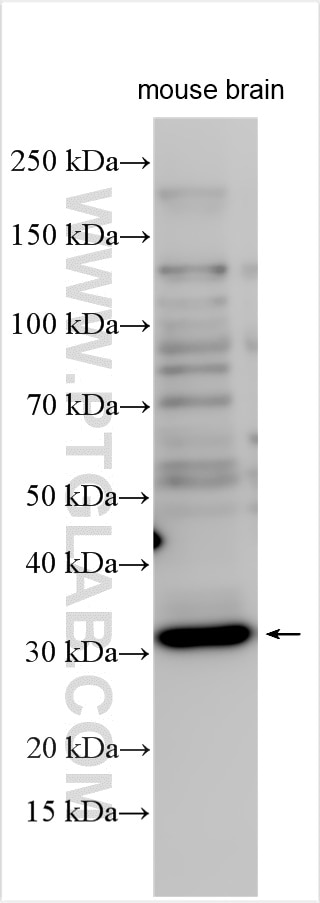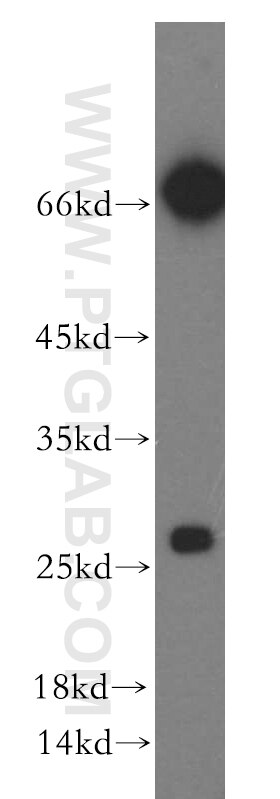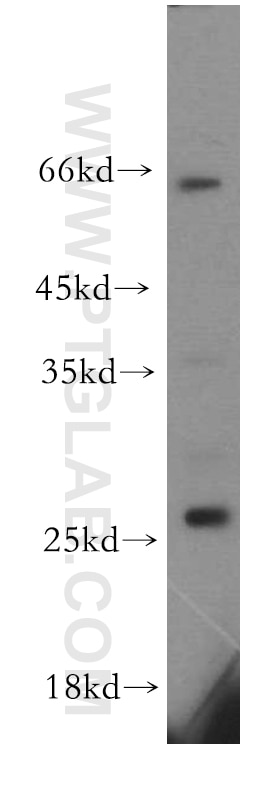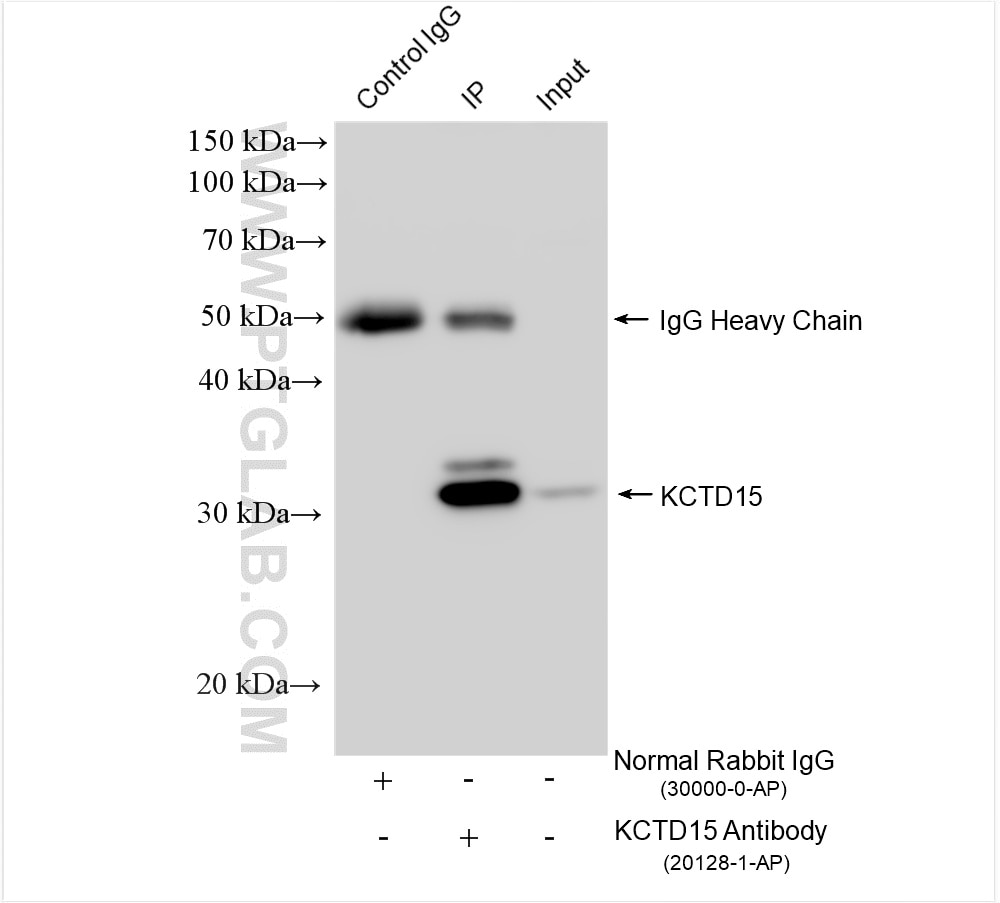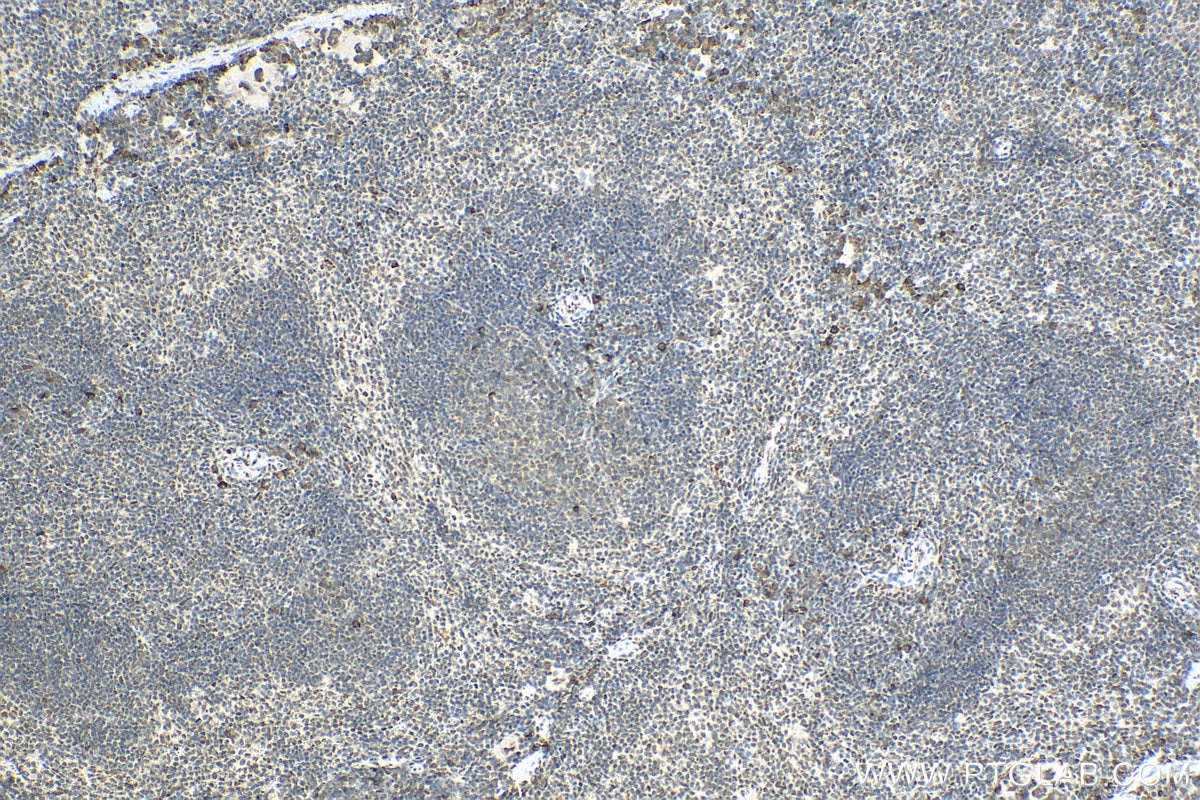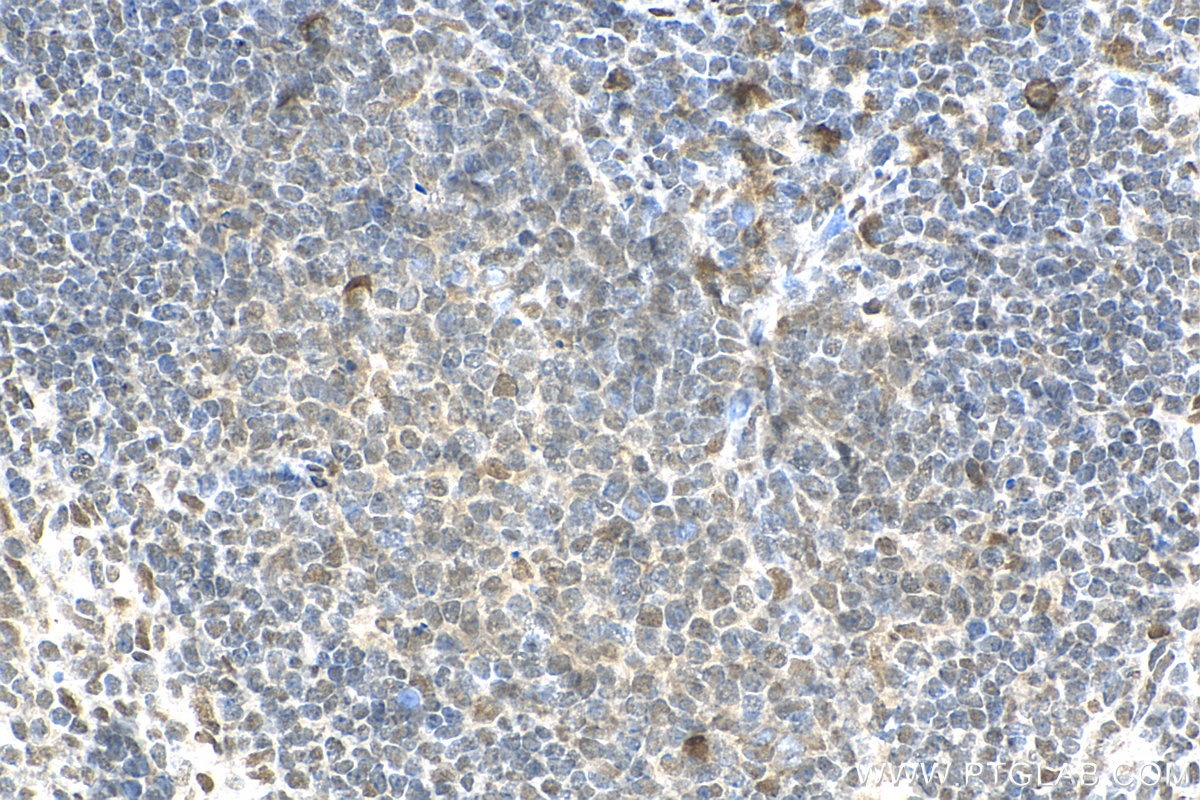- Phare
- Validé par KD/KO
Anticorps Polyclonal de lapin anti-KCTD15
KCTD15 Polyclonal Antibody for WB, IHC, IP, ELISA
Hôte / Isotype
Lapin / IgG
Réactivité testée
Humain, rat, souris
Applications
WB, IHC, IP, ELISA
Conjugaison
Non conjugué
N° de cat : 20128-1-AP
Synonymes
Galerie de données de validation
Applications testées
| Résultats positifs en WB | tissu cérébral de souris, cellules C6, cellules HEK-293, tissu pulmonaire de souris |
| Résultats positifs en IP | cellules C6, |
| Résultats positifs en IHC | tissu splénique de souris, il est suggéré de démasquer l'antigène avec un tampon de TE buffer pH 9.0; (*) À défaut, 'le démasquage de l'antigène peut être 'effectué avec un tampon citrate pH 6,0. |
Dilution recommandée
| Application | Dilution |
|---|---|
| Western Blot (WB) | WB : 1:500-1:1000 |
| Immunoprécipitation (IP) | IP : 0.5-4.0 ug for 1.0-3.0 mg of total protein lysate |
| Immunohistochimie (IHC) | IHC : 1:50-1:500 |
| It is recommended that this reagent should be titrated in each testing system to obtain optimal results. | |
| Sample-dependent, check data in validation data gallery | |
Applications publiées
| KD/KO | See 1 publications below |
| WB | See 1 publications below |
Informations sur le produit
20128-1-AP cible KCTD15 dans les applications de WB, IHC, IP, ELISA et montre une réactivité avec des échantillons Humain, rat, souris
| Réactivité | Humain, rat, souris |
| Réactivité citée | Humain |
| Hôte / Isotype | Lapin / IgG |
| Clonalité | Polyclonal |
| Type | Anticorps |
| Immunogène | KCTD15 Protéine recombinante Ag13962 |
| Nom complet | potassium channel tetramerisation domain containing 15 |
| Masse moléculaire calculée | 283 aa, 32 kDa |
| Poids moléculaire observé | 26 kDa |
| Numéro d’acquisition GenBank | BC001185 |
| Symbole du gène | KCTD15 |
| Identification du gène (NCBI) | 79047 |
| Conjugaison | Non conjugué |
| Forme | Liquide |
| Méthode de purification | Purification par affinité contre l'antigène |
| Tampon de stockage | PBS with 0.02% sodium azide and 50% glycerol |
| Conditions de stockage | Stocker à -20°C. Stable pendant un an après l'expédition. L'aliquotage n'est pas nécessaire pour le stockage à -20oC Les 20ul contiennent 0,1% de BSA. |
Informations générales
KCTD15 is a member of the KCTD family of proteins, which are involved in various biological processes. KCTD15 plays a role in embryonic development by regulating the neural crest domain. It inhibits neural crest induction by repressing the Wnt/β-catenin signaling pathway. KCTD15 is involved in the NF-κB signaling pathway, which is crucial for immune responses and inflammation. Its deregulation can influence the activation of the IKK-β enzyme complex, triggering the NF-κB pathway. KCTD15's expression levels in peripheral blood cells and leukemia cells suggest its potential as a biomarker for diagnosing and monitoring acute leukemias. Its distinct expression profile in different types of white blood cells highlights its importance in both physiological and pathological processes.
Protocole
| Product Specific Protocols | |
|---|---|
| WB protocol for KCTD15 antibody 20128-1-AP | Download protocol |
| IHC protocol for KCTD15 antibody 20128-1-AP | Download protocol |
| IP protocol for KCTD15 antibody 20128-1-AP | Download protocol |
| Standard Protocols | |
|---|---|
| Click here to view our Standard Protocols |
Publications
| Species | Application | Title |
|---|---|---|
Oncogenesis KCTD15 inhibits the Hedgehog pathway in Medulloblastoma cells by increasing protein levels of the oncosuppressor KCASH2.
| ||
Proc Natl Acad Sci U S A KCTD1 regulation of Adenylyl cyclase type 5 adjusts striatal cAMP signaling |
